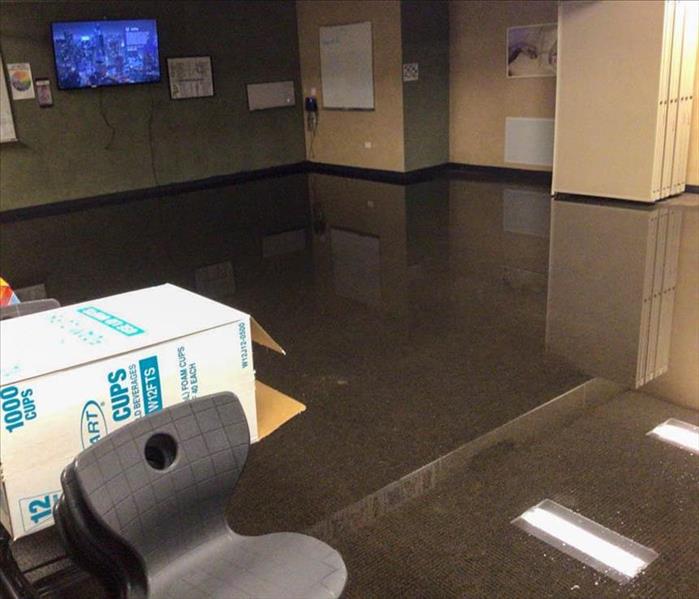Understanding the Dangers of Flood Water: Why is it Referred to as 'Black Water'?
6/15/2023 (Permalink)
Black water is a term used to describe water that is contaminated with harmful substances, including bacteria, viruses, and other pathogens. It is typically associated with sewage backups, flooding from rivers and streams, and water from the ocean or other bodies of water that contain high levels of contaminants.
Why is flood water considered black water?
Flood water is considered "black water" because it often contains a variety of contaminants, including sewage, chemicals, and other hazardous materials. When flood water enters a building, it can quickly spread and contaminate anything it comes into contact with, including walls, floors, furniture, and personal belongings.
Health Risks Associated with Black Water
Exposure to black water can pose serious risks. It can also lead to the growth of mold and other harmful bacteria, which can cause long-term problems if not properly addressed.
Mitigating Black Water Damage
Due to the potential risks associated with black water, it is crucial to take immediate action if your property has been affected by flood water. It is best to seek the services of a professional restoration company that specializes in black water damage cleanup and restoration. They have the necessary equipment, knowledge, and expertise to safely and effectively mitigate the damage and restore your property to its preloss condition.
Preventing Black Water Damage
While it is impossible to completely prevent flooding and black water damage, there are steps you can take to minimize the risk. These include:
- Regularly inspecting and maintaining your property's plumbing and drainage systems.
- Ensuring that gutters and downspouts are properly installed and functioning.
- Elevating appliances and electrical systems above potential flood levels.
- Keeping valuable items and important documents in waterproof containers.
In conclusion, flood water is considered "black water" because of the various contaminants it can contain, including sewage, chemicals, and other hazardous materials. Exposure to black water can pose serious risks, and it is important to seek professional restoration services if your property has been affected by flood water. Additionally, taking preventative measures can help minimize the risk of black water damage to your property.


 24/7 Emergency Service
24/7 Emergency Service
